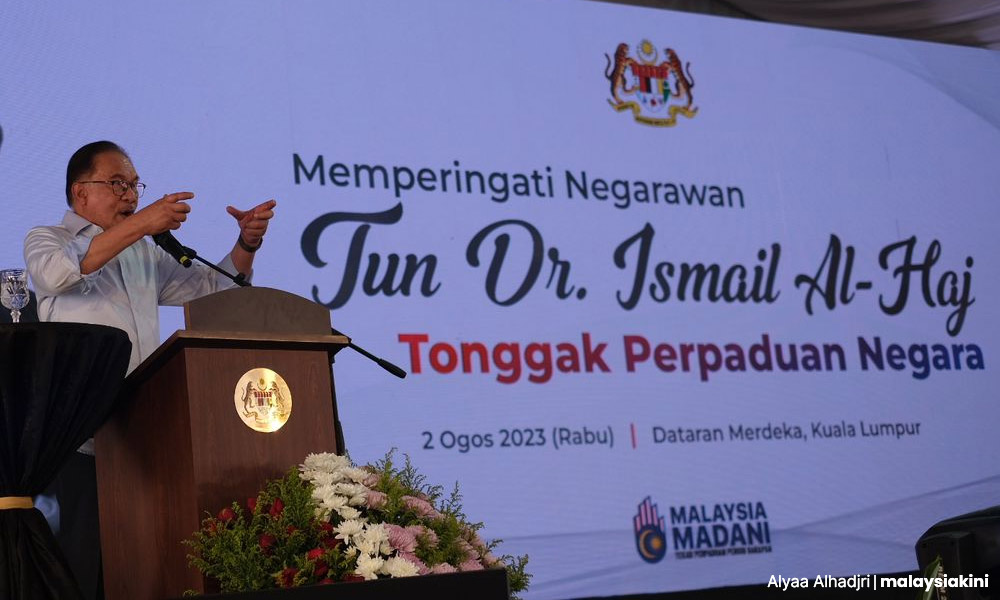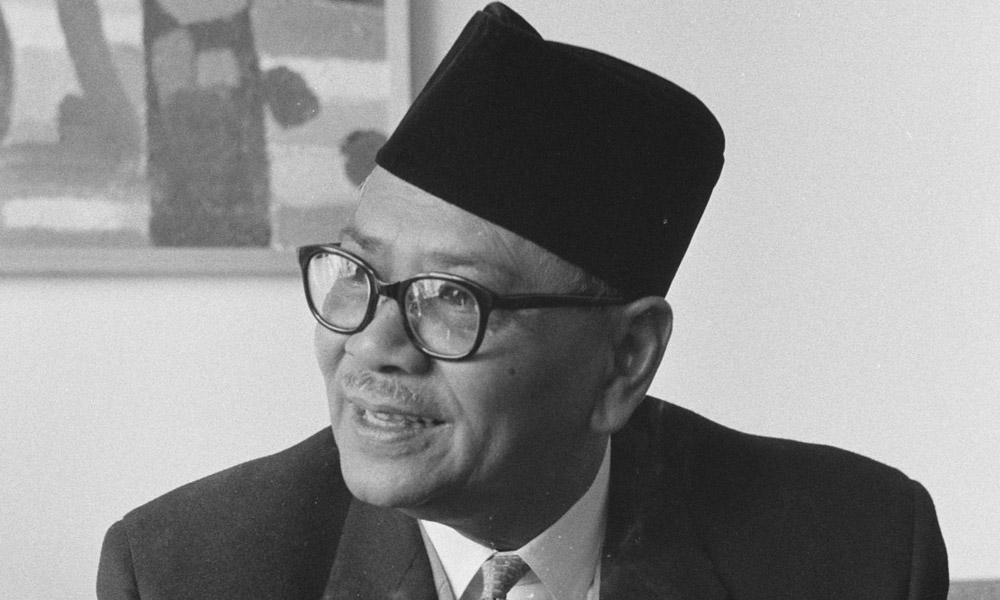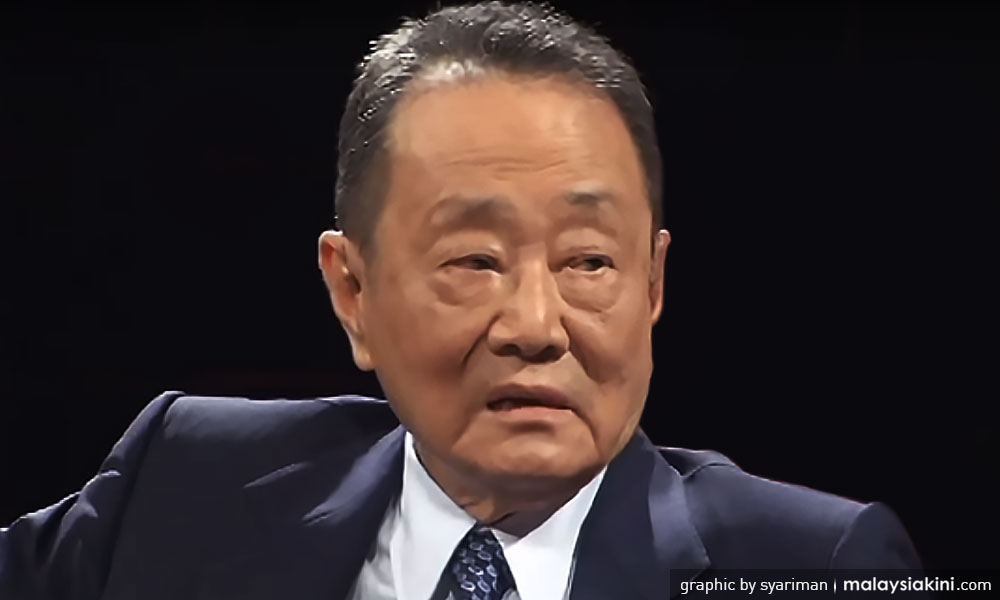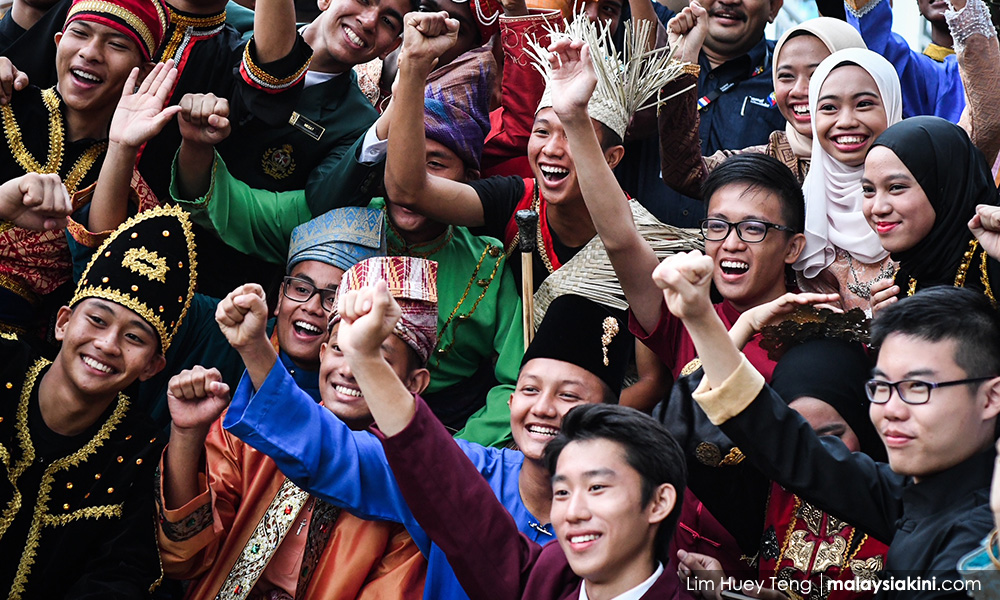Dr Ismail Abdul Rahman – Malaysia’s second deputy prime minister who placed national interests and that of the people above everything else – has been justifiably described as “the best prime minister Malaysia never had”.
In the words of the late Mohd Salleh Abas, former Lord President of the Federal Court, “Had he [Ismail] not died prematurely, Malaysia would have been different and the rule of law would not have suffered any reversal and would have continued to safeguard the freedom and liberty of all citizens, as indeed it was meant to be.”
Whereas, Ooi Kee Beng in his well-researched book ‘The Reluctant Politician: Tun Dr Ismail and His Time’ concluded that he is one of Malaysia’s “most respected founding fathers and one of the region’s more far-sighted and practical thinkers.”
In paying tribute to his compatriot and deputy, Abdul Razak Hussein, Malaysia’s distinguished second prime minister, described him as a “great patriot” and “an outstanding statesman and leader”.
Thus, Prime Minister Anwar Ibrahim’s recent announcement that Universiti Kebangsaan Malaysia will establish the Dr Ismail Abdul Rahman Chair “to appreciate the legacy of his leadership and thinking that supported racial unity” is a richly-deserved recognition for one of our nation’s most outstanding leaders in the post-independence era.

Regrettably, not much has been written, including in our school history textbooks, regarding the significant contributions of the late Ismail towards nation-building, particularly in promoting racial harmony and inclusive society.
Hence, this article seeks to add to the efforts being done to accord him his rightful place in our history.
It begins by providing his brief biography and the social milieu in which he grew up. The article subsequently delves into his exemplary character, major contributions to nation-building, and his legacy which should be emulated by our political leaders in creating a united, democratic, inclusive, and meritocratic Malaysia.
Early beginnings
Ismail was born into a Johor aristocratic family on Nov 4, 1915, in Johor Bahru. His father, Abdul Rahman Yassin was a top civil servant who had the distinction of being the first president of the Dewan Negara (Senate) and the first chairperson of Malayan Banking.
He started his education at Sekolah Bukit Zaharah and continued his studies at the English College, Johor Bahru. In 1945, he achieved a notable milestone when he qualified as the first Malay medical graduate from Melbourne University.
From 1947 to 1953, he went into private medical practice and established the ‘Tawakkal Clinic’, named after his childhood home.
Ismail was brought up in a multicultural environment. His father adopted about nine Chinese girls from impoverished families.
He himself maintained lifetime close relationships with other famous sons of Malaysia: the Kuok brothers (Philip and Robert) and the Puthucheary brothers (James and Dominic).
In 1950, he married Norashikin Seth. The couple were blessed with six children, the eldest being Mohamed Tawfik.
Tawfik is the co-founder of Gerak Independent, an initiative aimed at electing independent candidates into the federal Parliament, and a former MP (1986‒90) for Sungai Benut, Johor.
Political career
Ismail’s political career began when he joined Umno in 1951 as its vice-president after Tunku Abdul Rahman became its president.
After the Alliance party (Umno, MCA, and MIC) won the federal elections of 1955, Tunku Abdul Rahman, who was the chief minister, appointed him as the minister of natural resources.
Subsequently, he was part of the 1956 Alliance party’s delegation (others being Tunku, Razak, and Colonel HS Lee) to London to negotiate Malaya’s independence. In the same year, Ismail was appointed minister of commerce and industry.

It should be noted that he was actively involved in the negotiation and bargaining process with MCA and MIC leaders pertaining to the key issues of Islam being the religion of the Federation of Malaya, Malay being the official language, citizenship, and the special position of the Malays.
Upon Malaya’s independence in 1957, he was appointed Malaya’s first ambassador to the USA as well as its permanent representative to the United Nations (1957‒59).
He also held numerous ministerial portfolios, including commerce and industry, justice, home affairs, and foreign affairs.
In May 1967, Ismail resigned as the minister of home affairs due to his deteriorating health. However, with the outbreak of racial riots on May 13, 1969, the nation badly needed his leadership to restore law and order, and to gain public confidence.
He rejoined the government on May 14 and the next day, a state of emergency was declared with Parliament suspended.
He was appointed as the deputy director of operations of the National Operations Council (NOC), the de facto government which comprised top government officials.
Together with Razak, director of the NOC, Ismail played a key role in healing the nation and restoring parliamentary democracy.
Indeed, he is widely credited as the man who brought Malaysia back from the brink. The Dewan Rakyat (House of Representatives) reconvened on Feb 23, 1971, thanks to his untiring and purpose-driven efforts.
On Sept 22, 1970, he was deservedly appointed by Tunku as the deputy prime minister. Subsequently, he passed away due to a heart attack on Aug 2, 1973. He has the honour of being the first to be buried in the Heroes’ Mausoleum at the Masjid Negara.
Incorruptible character
Colleagues, friends, and other people who knew him speak very highly of Ismail’s impeccable character and outstanding qualities which made him stand tall in the company of others.
Among these are integrity, diligence, meticulousness, fairness, and incorruptibility – qualities which are increasingly rare to find these days.
According to Robert Kuok, the Malaysian business magnate currently residing in Hong Kong, Ismail was “a man of the highest integrity” and “Money, favours, political hypocrisy, or deceit, all those were anathema to him.”

A good example of his incorruptibility, as told by his children, is that their father turned away a Chinese woman who had come to their house with a truckload of vegetables.
She was hoping that he would help secure the release of her detained son. He told her in no uncertain terms to take the vegetables away, failing which she would be put in jail.
In terms of leadership style, he was truly a servant-leader who always placed the needs of the nation and community first.
He set incredibly high ethical standards in his public life which can be summed up in his famous remark: “I will do for the country what I will not do for myself and my family.”
Ever the principled politician, Ismail made important decisions based on his moral compass and the rule of law.
In the words of John Funston, an authority on government and politics in Southeast Asia, “He stuck to the letter of the law and was incorruptible, refusing to make exceptions even to political bosses and family members.”
Similarly, according to Tengku Ahmad Rithauddeen, the then under-secretary in the Ministry of Defence, Ismail was the type of fearless public official who would not hesitate to arrest even his own mother if she broke the law!
Nation-building legacy
Next, let’s delve into Ismail’s legacy and importance in nation-building. As aptly summarised by Ooi Kee Beng, his legacy and importance in Malaysian history are “his strong sense of fair play, his respect for ethnic diversity, and his principled leadership.”
For the record, as noted by K Kesavapany, former director of the Institute of Southeast Asian Studies, he “was a lone voice against the growing tide of extremism and bigotry” in Malaysia during the early 1970s.
He was a strong champion of a multi-ethnic Malaysia. His conviction was clearly spelt out in a speech he made which was reported by Utusan Malaysia, on Aug 4, 1973:
“Kita bukan bermaksud untuk mendirikan sebuah Malay-Malaysia, tetapi Malaysia yang dipunyai serta diwarisi oleh semua warganegara tanpa mengira kaum dan agama.”
(“We do not intend to establish a Malay-Malaysia, but a Malaysia that is owned and inherited by all citizens regardless of race and religion.”)

On the issue of the special privileges of the Malays, again Ismail’s position was fair and balanced. On the one hand, he viewed them as necessary to empower the Malays to compete with the non-Malays on an equal footing.
On the other hand, he felt these privileges should not be perpetuated forever as they would then become “a slur on the ability of the Malays”.
He urged them to be viewed as similar to a handicap in golf, something that should be removed altogether with improvements in the game.
Undoubtedly, Ismail was a major force to be reckoned with in Malaysian politics; he was instrumental in shaping the destiny of a young nation.
A Straits Times editorial dated Feb 25, 1967, affirmed that “it is difficult to think of a ministry he has not headed, a political role he has not played, a central event he has not influenced.”
He shall always be remembered as one of Malaysia’s greatest statesmen who courageously drove home the point that mutual respect and religious tolerance, coupled with promoting the legitimate interests of all ethnic groups, are the bedrock of Malaysia’s political and social stability.
In light of the increasingly divisive politics promoted by religious zealots and radically racist politicians, what Malaysia badly needs is a truly Bangsa Malaysia-oriented prime minister in the same mould as Ismail.
Summing up, he was one of Malaysia’s greatest sons and a statesperson of sterling qualities that all Malaysians can be immensely proud of.
His sense of duty and honour, no-nonsense character, principled and servant leadership style, and vision of a united and meritocratic multi-ethnic Malaysia should be emulated by our political leaders to ensure our nation’s continued success and well-being in a highly competitive world. - Mkini
RANJIT SINGH MALHI is an independent historian who has written 19 books on Malaysian, Asian, and world history. He is highly committed to writing an inclusive and truthful history of Malaysia based on authoritative sources.
The views expressed here are those of the author/contributor and do not necessarily represent the views of MMKtT.




No comments:
Post a Comment
Note: Only a member of this blog may post a comment.